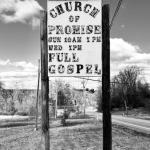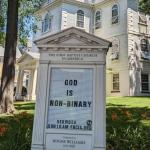
The Spirit and Social Justice
In the gospel of Luke, the Spirit being upon Jesus bore a certain, distinct fruit. Notice first, how many times the Spirit is connected to Jesus in Luke 4:
First, in Luke 4:1:
Jesus, full of the Holy Spirit, left the Jordan and was led by the Spirit into the wilderness…
Welcome Readers! Please subscribe to Social Jesus Here.
This is Part 1 of Pentecost and Social Justice
(Read this series from its beginning here.)
Then, in Luke 4:14, 15:
Jesus returned to Galilee in the power of the Spirit, and news about him spread through the whole countryside. He was teaching in their synagogues, and everyone praised him.
Then we reach the third mention in Luke 4:16-19:
“He went to Nazareth, where he had been brought up, and on the Sabbath day he went into the synagogue, as was his custom. He stood up to read, and the scroll of the prophet Isaiah was handed to him. Unrolling it, he found the place where it is written:
“The Spirit of the Lord is on me,
because he has anointed me
to proclaim good news to the poor.
He has sent me to proclaim freedom for the prisoners
and recovery of sight for the blind,
to set the oppressed free,
to proclaim the year of the Lord’s favor.”
Out of all the passages in the Hebrew Scriptures that the author of the book of Luke could have chosen to characterize Jesus’ ministry, that author chose this one from Isaiah. The Hebrew prophets, specifically Isaiah, understood the Spirit was intrinsically connected with liberation for the oppressed:
The Spirit of the Sovereign LORD is on me,
because the LORD has anointed me
to proclaim good news to the poor.
He has sent me to bind up the brokenhearted,
to proclaim freedom for the captives
and release from darkness for the prisoners,
to proclaim the year of the LORD’S favor. (Isaiah 61:1-2)
What I love about Luke’s and Acts’ connections is that in both books, the Spirit gives birth to justice in the lives of those upon whom the Spirit rests.
In Luke, echoing Isaiah, the Spirit being on Jesus led to liberation for the oppressed. Notice that in Acts, in the same chapter as Pentecost, we find a similar effect:
They devoted themselves to the apostles’ teaching and to fellowship, to the breaking of bread and to prayer. Everyone was filled with awe at the many wonders and signs performed by the apostles. All the believers were together and had everything in common. They sold property and possessions to give to anyone who had need. (Acts 2:42-45)
And what was the result? We’ll pick up here, in Part 3.
Are you receiving all of RHM’s free resources each week?
Begin each day being inspired toward love, compassion, justice and action. Free.
Sign up at HERE.















